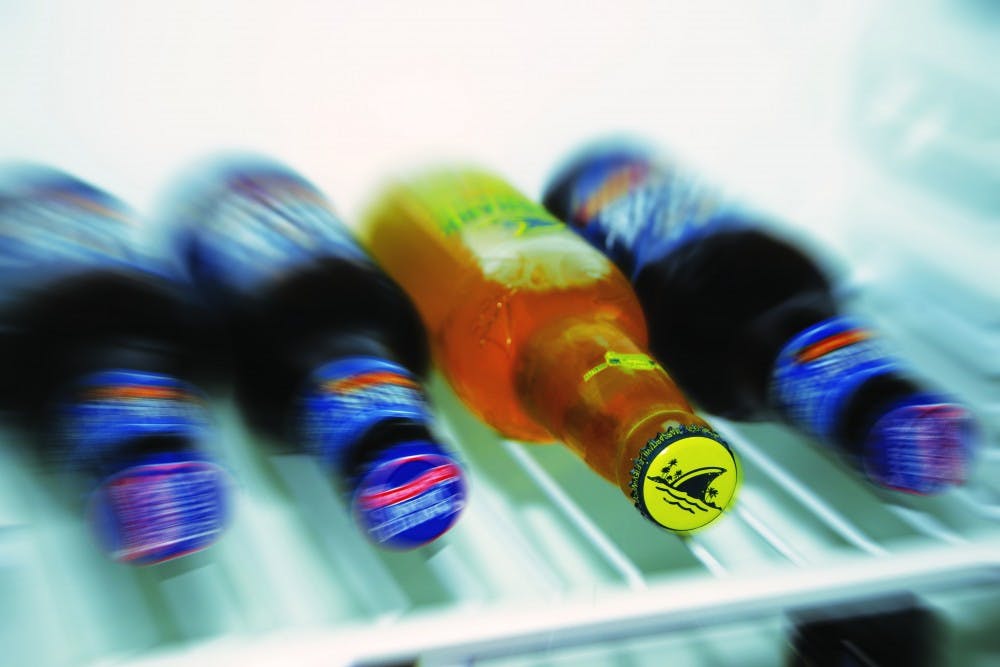“Drunkorexia” is a trend of dieting or eating less to lower one’s tolerance to alcohol.
A 2011 University of Missouri study found that 16 percent of survey participants restrict their calories for drinking.
Ball State’s Counseling Center said the trend can’t be diagnosed as a mental health issue, but would likely be an eating and substance abuse disorder.
Editor’s Note: The name Jenna Barkley is a pseudonym. The student’s name was changed to protect her identity.
Jenna Barkley, a Ball State sophomore, picked up a diet last month that did more than help her lose weight — she also can get drunk faster.
She started a diet consisting of only meats, nuts, vegetables and fruits. She lost 8 pounds in the first week and said the loss lowered her tolerance to alcohol.
According to a study, eating less to drink more has become a trend among some young adults.
In 2011, the University of Missouri released “‘Drunkorexia:’ a recipe for disaster.” The term “drunkorexia” is an unofficial label for the act of limiting food in an unhealthy manner to compensate for increased alcohol consumption.
The study found 16 percent of survey participants restrict their caloric intake before drinking alcohol.
The reasons behind holding back the calories can vary. Of those who avoided eating, 64 percent did it to stop weight gain and 25 percent avoided eating to get drunk faster. Two percent reported peer pressure as the motivation.
Barkley said she would diet regardless of her alcohol consumption, but she has noticed she now gets drunk faster.
“It’s a positive since I’m drinking less alcohol [and] can spend less,” she said. “At the same time, I guess you have to really watch yourself and know your limits so you don’t overdrink.”
Kyle Kittleson, a psychologist at the Ball State Counseling Center, said psychologists can’t diagnose students with drunkorexia because it isn’t recognized as a mental health issue.
“We would label it as something else or not label it at all and just talk about the behavior,” he said.
Kittleson said the habits the media associates with drunkorexia would most likely apply to someone with both an eating and a substance abuse disorder, but this would vary by case.
The combination can be dangerous.
Alcohol by itself interferes with how the body handles nutrients, according to the National Institute on Alcohol Abuse and Alcoholism. Students who binge drink while not eating enough won’t get the nutrients they need to be healthy.
Other consequences can include addiction, other eating disorders, alcohol poisoning and engaging in violence or risky sexual behavior.
Though Kittleson didn’t comment on how many students he sees showing symptoms of drunkorexia, he said the Counseling Center has a number of programs to help students with substance abuse or eating disorders.
He helps lead the Substance Abuse Prevention Outreach team responsible for providing information to students about how to make educated decisions regarding alcohol.
The Counseling Center offers other groups and resources for students who want help with eating or substance abuse disorders.
“I think people can get this idea that, ‘If I talk to people over at the Counseling Center, that means I have a drinking problem,’” Kittleson said. “We don’t necessarily see it that way. We just want to help you make choices in your life that are healthy.”





